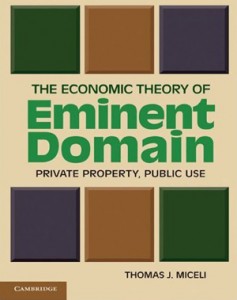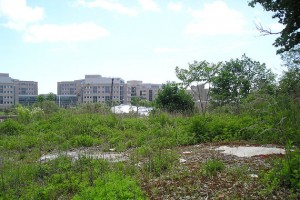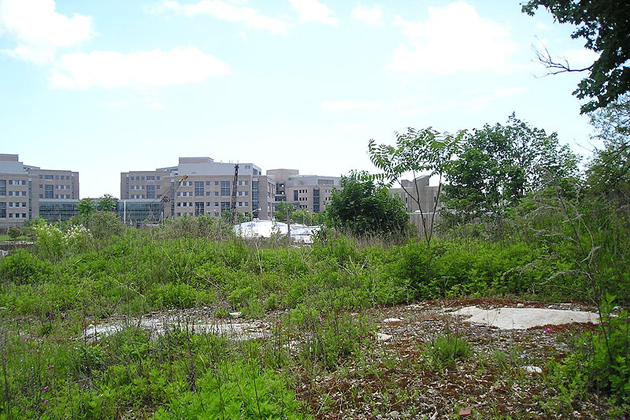 Two words that can strike terror in a homeowner’s heart also describe the research of economist Thomas J. Miceli: Eminent domain.
Two words that can strike terror in a homeowner’s heart also describe the research of economist Thomas J. Miceli: Eminent domain.
Miceli, a professor of economics in the College of Liberal Arts and Sciences, says eminent domain, a subject that can join conservatives and liberals in a passionate defense of private property, can be seen in another light. In his recently published book The Economic Theory of Eminent Domain (Cambridge University Press), he describes how many economists view the subject.
Taking private property for public use is justified when a more valuable use of the land will result, he says. Eminent domain solves what economists call “the holdout problem,” which they view as a kind of market failure that prevents maximizing the value of the land.
The controversial Kelo decision by the U.S. Supreme Court in 2005 upholding the city of New London’s eminent domain claim to the property of Susette Kelo and others in the Fort Trumbull area, was “the right decision for the wrong reason,” Miceli says.
His case is neither emotional, nor political, nor personal.
While the court decision was argued on political grounds and raised great controversy because the resulting development would have been private, the economic grounds were compelling.
“The key point is, it doesn’t matter whether the large project is truly public or private,” he says. Even a private development that would offer a beneficial higher use of the land can justify the government’s taking of land by eminent domain.

The New London case caused states around the country to pass more restrictive eminent domain laws to prevent similar takings. In New London, the land taking was intended to benefit a private development of waterfront apartments and shops meant to serve Pfizer employees and generate jobs and tax revenues for the city. But the recession hit, and Pfizer closed its New London facility. Meanwhile the city had taken the land, razed houses, and moved homeowners. Now it owns a vacant field and empty sidewalks.
But the decision to take the land under eminent domain was based on an assessment, valid when it was made, that development was the most valuable use, Miceli points out.
“You can’t evaluate these things in hindsight,” he says.
Still, he adds, ““I worry a lot about the quantitative measures of welfare.” In other words, what is the threshold of the greater good.
Miceli has visited the vacant land – his grandfather, Giuseppe Miceli, owned a house a mile or so away, and he spent summers in New London as a child. Family lore has it that his grandfather, a gardener at Connecticut College, was instrumental in setting up the college’s famous arboretum.
He is not unsympathetic to the homeowners who held out in the New London case.
“As an economist, I don’t question their motives – it’s private property, and they have a right not to sell.” But the economic theory is clear: Holdouts are in the way of the market.
Miceli became interested in the subject of eminent domain as an undergraduate at Wesleyan when he took a course on the economics of the law. After earning a Ph.D. at Brown, he came to UConn in 1987 as an assistant professor and began doing research and publishing papers on eminent domain and related topics in urban economics.
His latest book brings together ideas and economics research on eminent domain over the past 20 years. Economists can contribute insights to the debate, which usually centers on political grounds, he says. Their role is to ask a fundamental question.
“The issue is, when can government take private property without the owners’ consent? Under what conditions? And what should be the compensation?”
Eminent domain cases bring together strange bedfellows, he says, citing conservative support for stricter state regulation of eminent domain in light of the Kelo decision. His book offers a view of the problem from a different perspective.
Says Miceli, “I hope someone who reads this book won’t be able to tell my political views.”



